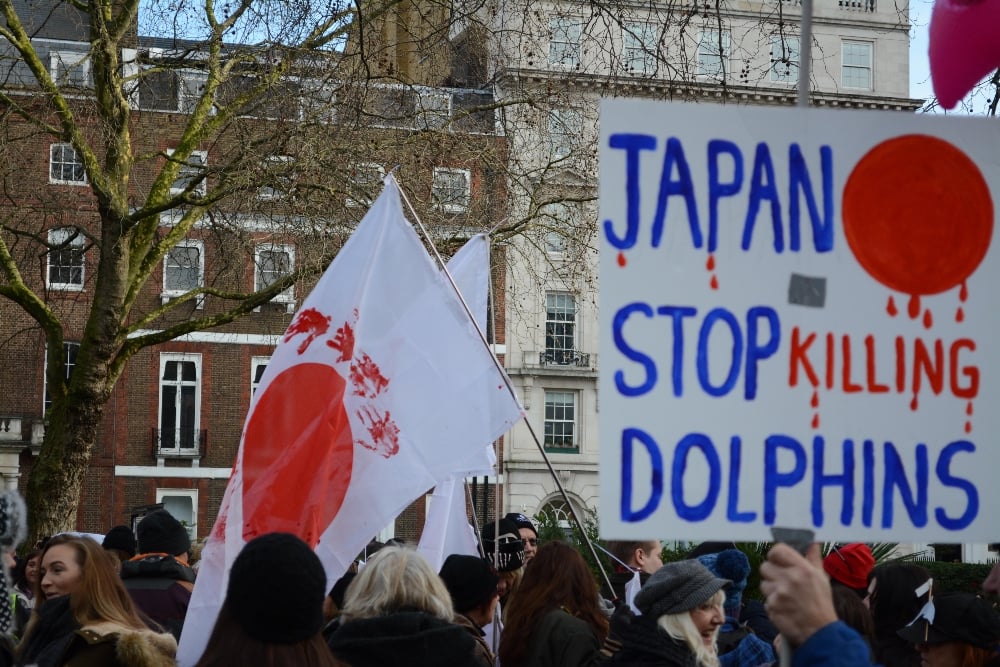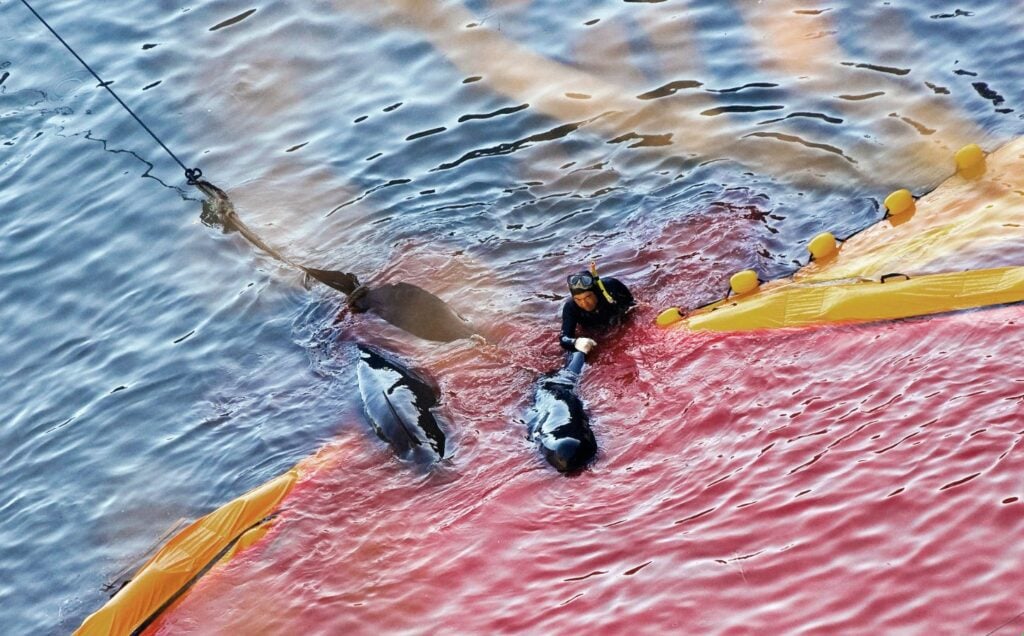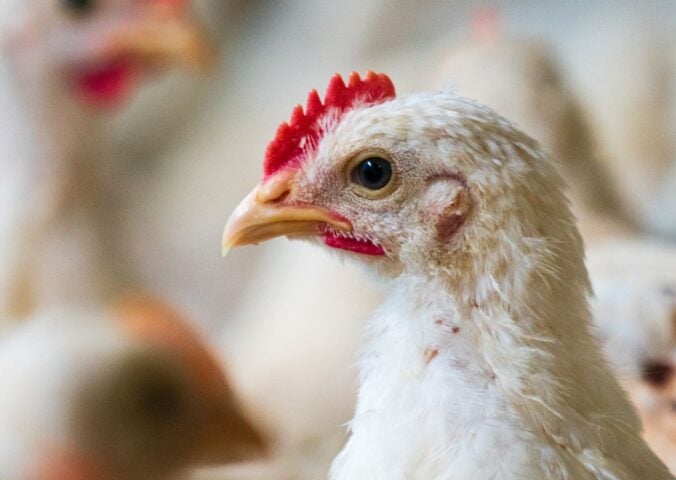The annual Taiji dolphin drive hunt began in Japan last month, and the sea turned red with blood.
The six-month-long event is set to run through to March 1 next year. It is launched from the southern whaling town of Taiji, and is authorized by the Japan Fisheries Agency.
Fishers participating in the hunt head out in their droves to force pods of dolphins into shallow waters, before stabbing them to death.
While hunting occurs across the whole of Japan, Taiji has become infamous for its contribution. This is because fishers destroy entire pods of mammals in the area, thereby significantly decreasing the overall population.
Hunting dolphins for food
Despite the practice facing international criticism, Japan is yet to ban the dolphin hunt. Officials have previously defended it, claiming that it provides essential meat for local people.
“Foreign activists ask us why we kill these cute animals. But we see them as a vital source of food, even now,” Taiji’s mayor, Kazutaka Sangen, told the Guardian in 2017.
“When I was a boy, a third of the town would turn out to greet a whale being brought back to shore, because they were desperate to eat its meat. We are grateful to the whales – we want Westerners to understand that.”
However, not all of the mammals are killed for food. Animal advocacy group The Dolphin Project (TDP) investigated the 2021/22 hunt. They discovered that at least 563 animals were impacted, with 493 killed for meat and 65 sold to aquariums.
While the number of dolphins killed has declined, from around 2,100 in the 2000/01 hunt, this is not due to government imposed limits. The official quota that hunters are expected to meet is currently listed at 1,849 animals, 100 more than in 2020.
Exposing Taiji to the world
TDP has spent years collating and sharing data from the Taiji dolphin hunts. It livestreams shocking footage throughout each season to raise public awareness. And, supports activists on the ground who protest against the annual massacre. Upon conclusion of a season, TDP posts detailed infographics that present the most important information, including total kill numbers.
The hunt has been in the media spotlight for some time. Back in 2009, former National Geographic photographer and co-founder of the Oceanic Preservation Society, Louie Psihoyos, released The Cove.

The film, which shone a light on the Taiji hunts seemingly for the first time, won an Academy Award for Best Documentary Feature. The film called for a radical change to Japanese fishing laws. It also sought to educate viewers on the perils of keeping marine animals in captivity.
Much like the 2021 documentary Seaspiracy, the film was met with criticism predicated on a perceived lack of neutrality.
However, Psihoyos defended his project, stating that it deliberately showed an ocean conservationist’s view and that the world needed to see what was happening in Taiji.
Hunting whales and dolphins doesn’t just occur in Japan. Iceland and Norway are also primary commercial whalers. And, according to the Oceanic Preservation Society, legal dolphin and whale hunts also take place in the US, Canada, and Denmark, among other countries.
The plight of whales and dolphins
Five species and six sub-species of dolphin, including the baiji and South Asian River varieties, are now considered to be endangered. Human activities, including hunting, are widely deemed to be the major cause.
Last year, in a bid to save the marine mammals from extinction, a collective of notable celebrities, including Chris Packham and Dr. Jane Goodall, came together to ask 88 countries to do more to protect them. It was part of the International Whaling Commission’s new 50-year vision plan, launched in 2021. Goodall particularly referenced the cruelty of commercial whaling in her reasons for supporting the initiative.
But it’s not just hunted marine animals that suffer; those held in captivity are frequently found to be subjected to unsafe conditions, with many dying as a result. Most recently, three dolphins perished at a marine park in Malta within 20 days of each other. The deaths appeared to have been kept quiet and were eventually linked to lead poisoning.
To help put an end to the Taiji hunt in Japan, those interested can add their name to the International Marine Mammal Project’s petition here.






